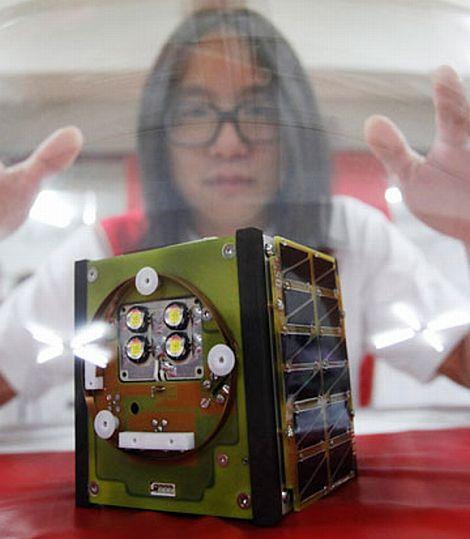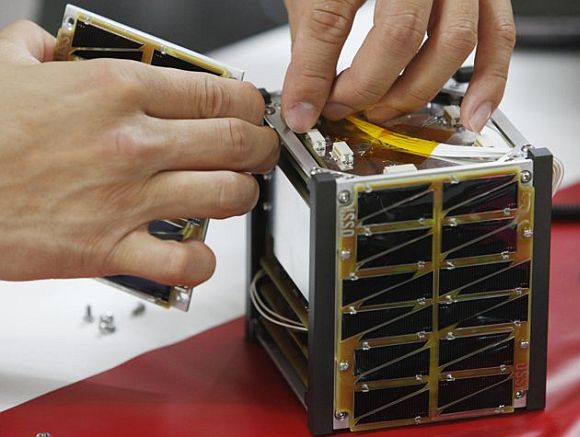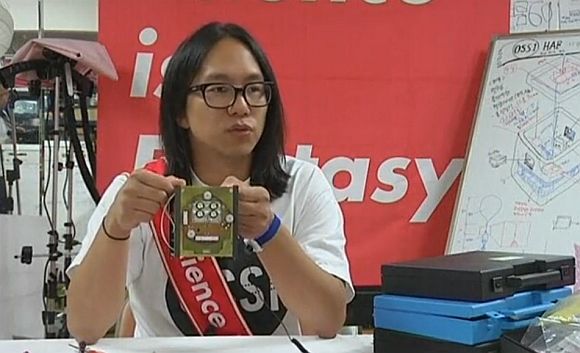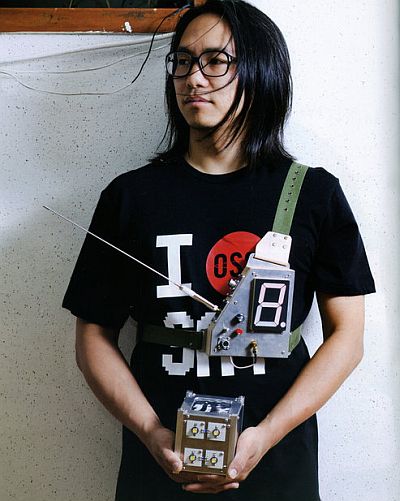Photographs: Reuters
A 34-year-old South Korean engineer who scavenged cheap electronic stores for six years has made a $500 (Rs 27,500) satellite in his basement, which will be launched into space this year.
The satellite Opensat built from electronics collected from cheap electronics store is the first truly personal satellite designed and financed by an individual, its owner Song Hojun has claimed, the Daily Mail reported.
The cubical Opensat weighs 1 kg and measures 10 cubic centimetres. It will transmit information about the working status of its battery, the temperature and rotation speed of the satellite's solar panel.
Click on NEXT to see more PHOTOS...
The Rs 27,500 satellite made in a basement
Image: The unique satellitePhotographs: Reuters
Radio operators will be able to communicate with the satellite and it will repeat a message in Morse code using its LED lights at a set time and location.
"Making a satellite is no more difficult than making a cell phone," Song Hojun was quoted by the paper as saying.
"I believe that not just a satellite, but anything can be made with the help of the Internet and social platforms. I chose a satellite to show that symbolically," he said.
There's a long history of do-it-yourself satellites being launched by universities and scientific groups around the world, as well as amateur radio clubs, but Song claimed his is the first truly personal satellite designed and financed by an individual.
Click on NEXT to see more PHOTOS...
The Rs 27,500 satellite made in a basement
Image: Song Hojun explaining how his satellite worksPhotographs: Reuters
After working as an intern at a private satellite company, he came up with the idea for his 'Open Satellite Initiative', which in turn led him to contact space professionals from Slovenia to Paris.
"I'm just an individual, not someone working for big universities, corporations or armies, so they open up to me and easily give out information," said Song.
Song spent nearly six years combing through academic papers, shopping online at sites that specialise in components that can be used for space projects, and rummaging through electronic stores hidden in the back alleys of Seoul.
Click on NEXT to see more PHOTOS...
The Rs 27,500 satellite made in a basement
Image: Song Hojun with his satellitePhotographs: Courtesy Song Hojun's Facebook page
While the components cost only $440, the cost for launching the satellite hit $1,04,640 after Song signed a contract with a French technology company.
The satellite will be launched from the Baikonur Cosmodrome in Kazakhstan in December with another satellite, the report said.
Song has been invited to talk at Massachusetts Institute of Technology (MIT) Media Lab and CalArts, both in the United States, and the Royal College of Art in London.
Click on MORE to see another set of PHOTOS





article